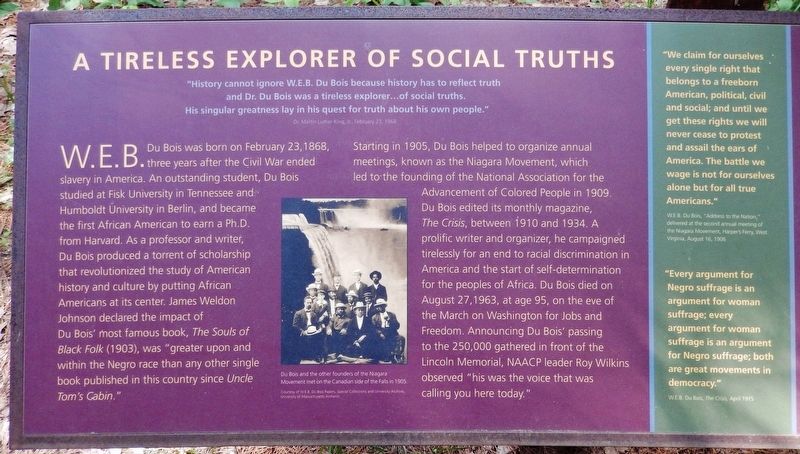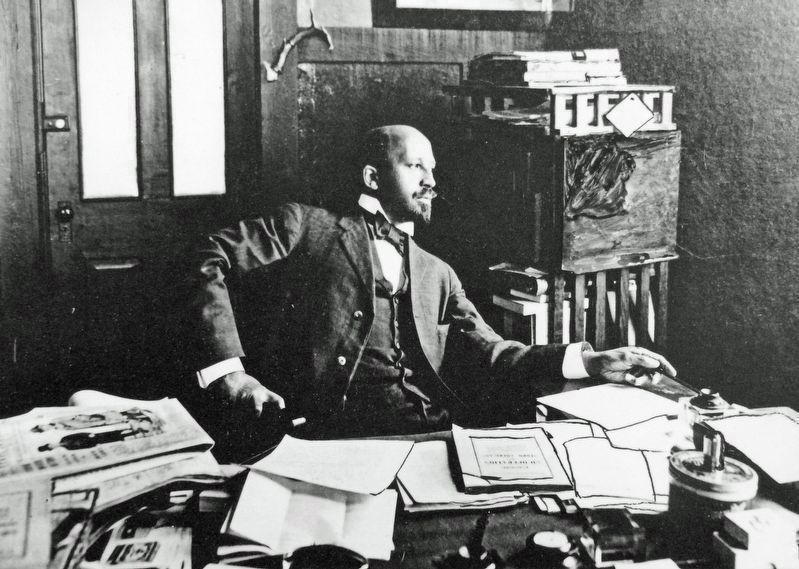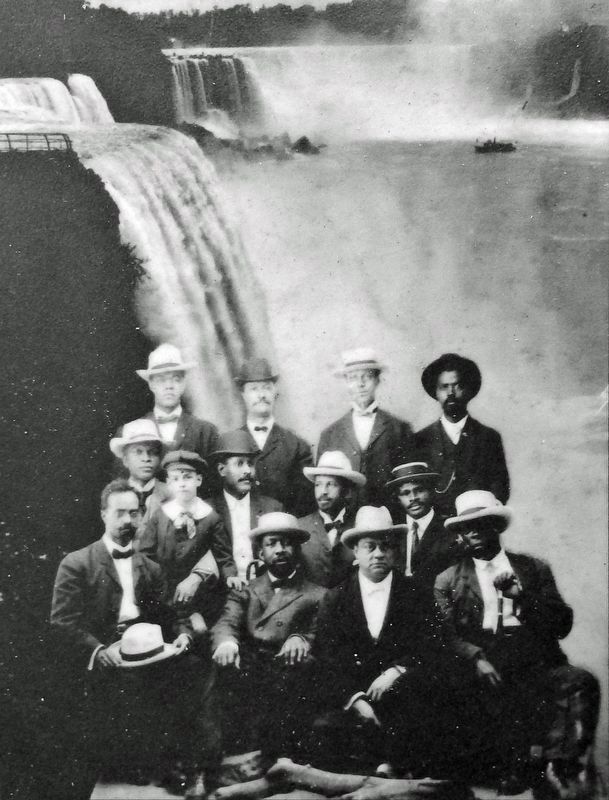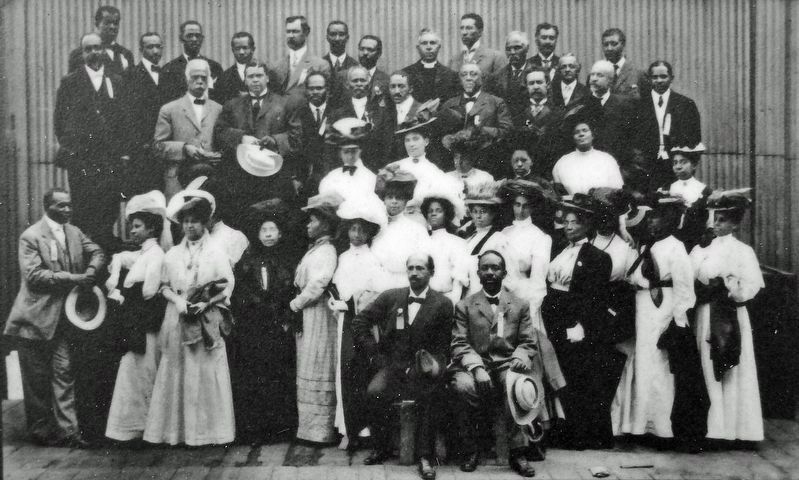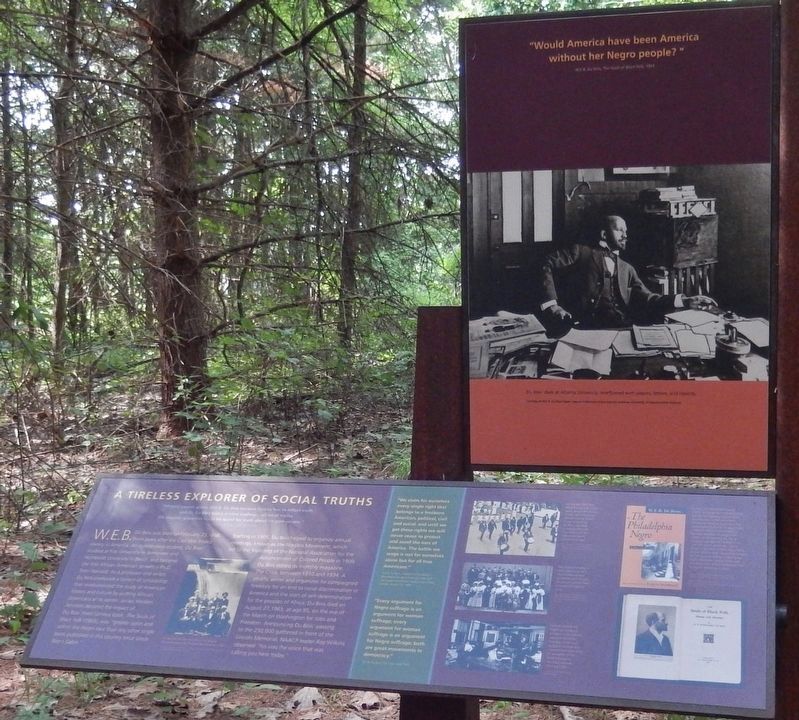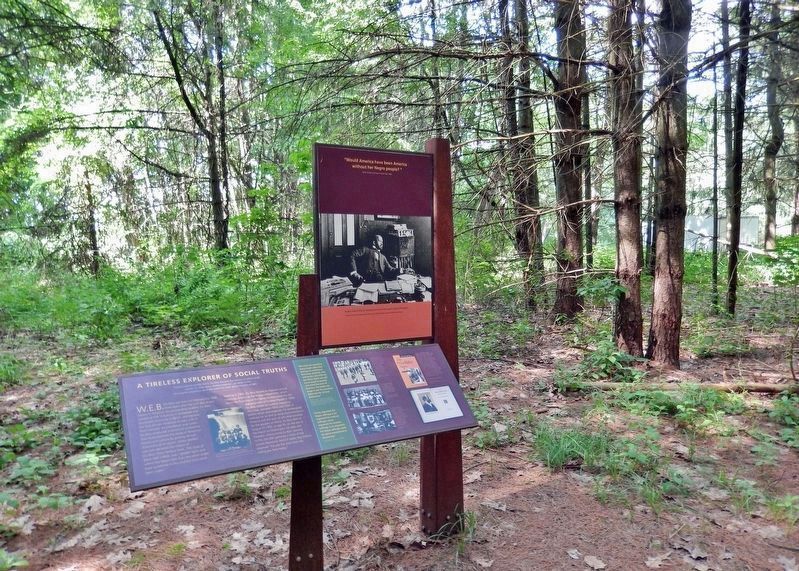Great Barrington in Berkshire County, Massachusetts — The American Northeast (New England)
A Tireless Explorer of Social Truths
W.E.B. Du Bois National Historic Site
”History cannot ignore W.E.B. Du Bois because history has to reflect truth and Dr. Du Bois was a tireless explorer… of social truths. His singular greatness lay in his quest for truth about his own people.”
—Dr. Martin Luther King, Jr., February 23, 1968
W.E.B. Du Bois was born on February 23, 1868, three years after the Civil War ended slavery in America. An outstanding student, Du Bois studied at Fisk University in Tennessee and Humboldt University in Berlin, and became the first African American to earn a Ph.D. from Harvard. As a professor and writer, Du Bois produced a torrent of scholarship that revolutionized the study of American history and culture by putting African Americans at its center. James Weldon Johnson declared the impact of Du Bois' most famous book, The Souls of Black Folk (1903), was "greater upon and within the Negro race than any other single book published in this country since Uncle Tom's Cabin."
Starting in 1905, Du Bois helped to organize annual meetings, known as the Niagara Movement, which led to the founding of the National Association for the Advancement of Colored People in 1909. Du Bois edited its monthly magazine, The Crisis, between 1910 and 1934. A prolific writer and organizer, he campaigned tirelessly for an end to racial discrimination in America and the start of self-determination for the peoples of Africa. Du Bois died on August 27, 1963, at age 95, on the eve of the March on Washington for Jobs and Freedom. Announcing Du Bois' passing to the 250,000 gathered in front of the Lincoln Memorial, NAACP leader Roy Wilkins observed "his was the voice that was calling you here today."
"We claim for ourselves every single right that belongs to a freeborn American, political, civil and social; and until we get these rights we will never cease to protest and assail the ears of America. The battle we wage is not for ourselves alone but for all true Americans."
—W.E.B. Du Bois, "Address to the Nation," delivered at the second annual meeting of the Niagara Movement, Harper's Ferry, West Virginia, August 16, 1906
”Every argument for Negro suffrage is an argument for woman suffrage; every argument for women suffrage is an argument for Negro suffrage; both are great movements in democracy.”
—W.E.B. Du Bois, The Crisis, April 1915
”Would America have been America without her Negro people?”
—W.E.B. Du Bois, The Souls of Black Folk, 1903
Topics. This historical marker is listed in these topic lists: African Americans • Civil Rights • Communications • Education.
Location.
42° 10.689′ N, 73° 23.623′ W. Marker is in Great Barrington, Massachusetts, in Berkshire County. Marker can be reached from South Egremont Road (Massachusetts Route 23/41) 0.1 miles south of Egremont Plain Road (Massachusetts Route 71), on the right when traveling south. Marker is located along the W.E.B. Du Bois Boyhood Homesite interpretive trail. Touch for map. Marker is at or near this postal address: 612 South Egremont Road, Great Barrington MA 01230, United States of America. Touch for directions.
Other nearby markers. At least 8 other markers are within walking distance of this marker. Democracy and Human Rights (a few steps from this marker); W.E.B. Du Bois: Architect of the Modern Civil Rights Movement (within shouting distance of this marker); A Contribution that No Other Race Can Make (within shouting distance of this marker); W.E.B. Du Bois Boyhood Homesite (within shouting distance of this marker); Boulder Dedicated to the Legacy of W.E.B. Du Bois (about 300 feet away, measured in a direct line); Grass Roots Democracy (about 300 feet away); I Have A Sentimental Desire to Keep this Place (about 400 feet away); The House of the Black Burghardts (about 400 feet away). Touch for a list and map of all markers in Great Barrington.
Related markers. Click here for a list of markers that are related to this marker. W.E.B. Du Bois National Historic Site
Also see . . .
1. W.E.B. Du Bois.
Du Bois published his seminal work The Souls of Black Folk in 1903. In this collection of essays, Du Bois described the predicament of Black Americans as one of "double consciousness": "One ever feels his twoness, — an American, a Negro; two souls, two thoughts, two unreconciled strivings; two warring ideals in one dark body, who dogged strength alone keeps it from being torn asunder."(Submitted on March 30, 2022, by Cosmos Mariner of Cape Canaveral, Florida.)
2. W.E.B. Du Bois.
W.E.B. Du Bois, or William Edward Burghardt Du Bois, was an African American writer, teacher, sociologist and activist whose work transformed the way that the lives of Black citizens were seen in American society. Considered ahead of his time, Du Bois was an early champion of using data to solve social issues for the Black community.(Submitted on March 30, 2022, by Cosmos Mariner of Cape Canaveral, Florida.)
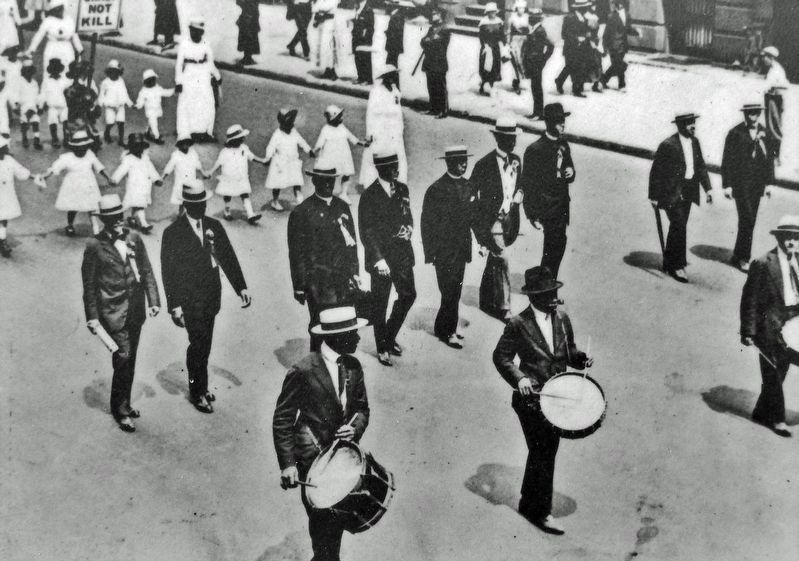
W.E.B. Du Bois Papers, Special Collections & University Archives, University of Mass. Amherst
4. Marker detail: March down Fifth Avenue in New York City
On July 29, 1917, the NAACP organized a silent march down Fifth Avenue in New York City to call to attention the routine horror of lynching. Du Bois is carrying a walking stick and marching in the line behind the drums, second from right.
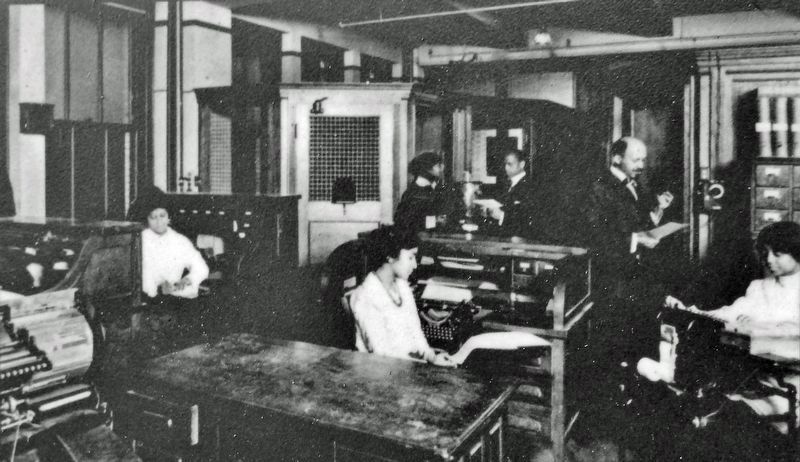
Courtesy Hulton Archive/Getty Images
6. Marker detail: Du Bois was editor of The Crisis
Du Bois reached the height of his political influence as the premier advocate for African American causes and analyst of national and international events when he was editor of the NAACP magazine, The Crisis, between 1910 and 1934.
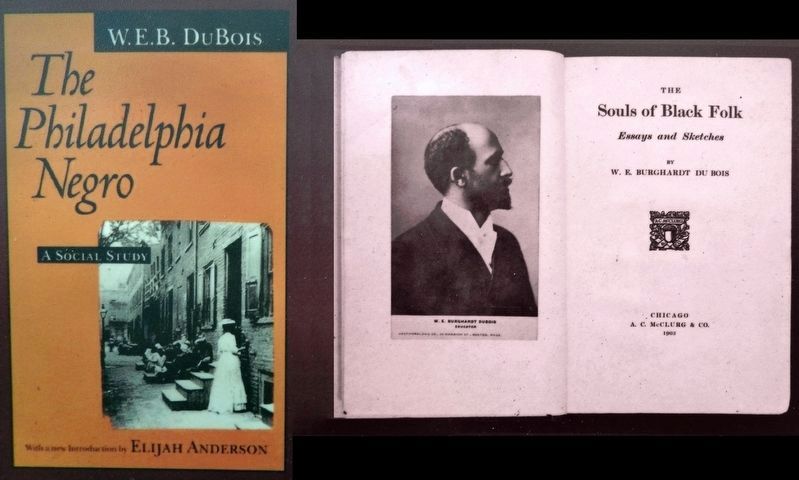
7. Marker detail: Du Bois’ Writings
Du Bois' The Philadelphia Negro (1899), a pioneering sociological study, exposed the consequences of racial discrimination in the urban north. Among his historical works were The Suppression of the African Slave Trade (1896), his doctoral dissertation at Harvard, and Black Reconstruction (1935), which depicted the African American struggle for freedom in the Civil War and its aftermath. The 14 essays in The Souls of Black Folk (1903), his best-known book, eloquently insisted on the necessity of Blacks fighting for higher education, voting rights, and the recognition of their contribution to America's identity as a nation.
Cover of The Philadelphia Negro: A Social Study
Courtesy of the University of Pennsylvania Press
Cover of The Souls of Black Folk
Courtesy of Special Collections Research Center, University of Chicago Library
Credits. This page was last revised on April 2, 2022. It was originally submitted on March 27, 2022, by Cosmos Mariner of Cape Canaveral, Florida. This page has been viewed 192 times since then and 37 times this year. Photos: 1, 2, 3, 4, 5, 6, 7, 8, 9. submitted on March 30, 2022, by Cosmos Mariner of Cape Canaveral, Florida.
